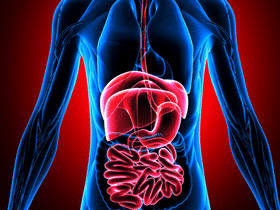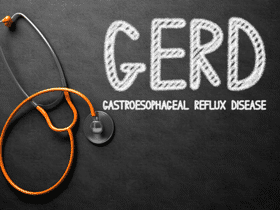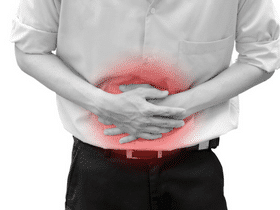The digestive system consists of all parts of your body that are involved in the digestion of food and liquids. This includes the gastrointestinal tract, as well as the liver, pancreas, and gallbladder. These pieces work together to make sure that nutrients your body requires are absorbed from food, and then to expel the waste that’s left behind.
The GI tract (gastrointestinal tract) consists of the mouth, esophagus, stomach, small intestine, large intestine (including the rectum) and anus. These are all hollow organs that are joined together, and which carry food from the mouth to the anus. The liver, pancreas and gallbladder are solid organs involved in digestion.
There are also bacteria that live within your GI tract that help with digestion. Parts of the circulatory and nervous system are also involved in the digestive process.
You may not think about your GI tract or how the digestive system works when you are feeling well. But when problems occur, it can have a big effect on your daily routine and overall quality of life.
Knowing more about your digestive system will help you and your loved ones to better understand what you can do to prevent or treat GI issues. Or when to see a doctor.
That’s why we’ve put together this comprehensive guide to GI health. We’re constantly adding to our collection of GI resources. So, be sure to bookmark this page to access the latest tips for understanding and managing GI health and the problems and diseases that can occur.
GI Tract Health: Common Problems and How To Avoid Them
Knowledge of your gastrointestinal (GI) tract will help you, and your loved ones, understand issues you or they may be having with digestion.
There are ways to alleviate or prevent common problems such as: heartburn, diarrhea, and bloating.
Understanding when you should see your doctor is also important.
Read on to learn more about your GI tract health, common problems, and steps to avoid them.
Celiac Disease Symptoms, Causes, Diagnosis and Other FAQs
People with celiac disease undergo an immune reaction in the small intestine when they ingest gluten. Over time, this results in damage to the intestine.
While many people today are reducing their intake of gluten, those who have the disease must totally avoid gluten to prevent serious damage to the small intestines.
Do you, or someone you love, suffer from celiac disease?
Gastroesophageal Reflux Disease (GERD): Causes, Symptoms, and Treatments
GERD is a chronic digestive condition that involves the stomach and esophagus, and results from the backwash of stomach acid into the esophagus.
Understanding this chronic condition is the first step to implementing lifestyle changes that can help you to deal it.
Find out more about GERD and how you can manage the symptoms and avoid long-term complications.
The Irritable Bowel Syndrome Diet and Home Remedies to Avoid IBS Symptoms
Irritable Bowel Syndrome (IBS) affects the large intestine and is a chronic condition.
Many are able to successfully manage IBS with proper lifestyle changes and by controlling triggers.
If you think you suffer from IBS, understanding your triggers and making adjustments to your lifestyle can help you to live a more comfortable life.
Read on to learn more about IBS triggers and how to avoid them.
Inflammatory Bowel Disease (IBD): About Crohn’s and Ulcerative Colitis
Crohn’s and Ulcerative Colitis are the two most common forms of inflammatory bowel disease (IBD).
Over time, they may change your body’s ability to digest and absorb nutrition from the food you eat, resulting in numerous health complications.
Trusted Sources:
JoinAStudy only uses trusted resources, such as Health On The Net Code (HONcode) as we only want to provide quality health information to professionals and the general public.
The Government of Canada:
Healthline:
http://www.healthline.com/health/bowel-disorders#overview1
https://www.healthline.com/health/bowel-disorders#types
http://www.healthline.com/health/ulcerative-colitis#Overview1
http://www.healthline.com/health/ulcerative-colitis#Treatments7
http://www.healthline.com/health/digestive-health-maintenance#overview1
Mayo Clinic
http://www.mayoclinic.org/diseases-conditions/celiac-disease/symptoms-causes/dxc-20214627
http://www.mayoclinic.org/diseases-conditions/irritable-bowel-syndrome/basics/causes/con-20024578
http://www.mayoclinic.org/diseases-conditions/irritable-bowel-syndrome/basics/symptoms/con-20024578
http://www.mayoclinic.org/diseases-conditions/gerd/basics/lifestyle-home-remedies/con-20025201
http://www.mayoclinic.org/diseases-conditions/gerd/basics/treatment/con-20025201
http://www.mayoclinic.org/diseases-conditions/gerd/basics/symptoms/con-20025201
http://www.mayoclinic.org/diseases-conditions/gerd/basics/causes/con-20025201
http://www.mayoclinic.org/diseases-conditions/gerd/basics/definition/con-20025201
The National Center for Biotechnology Information (NCBI)
https://www.ncbi.nlm.nih.gov/pmc/articles/PMC3352839/
The National Institute Of Diabetes and Digestive and Kidney Diseases
https://www.niddk.nih.gov/health-information/digestive-diseases/digestive-system-how-it-works
WebMD
http://www.webmd.com/digestive-disorders/celiac-disease/celiac-disease#1
http://www.webmd.com/ibd-crohns-disease/crohns-disease/digestive-diseases-crohns-disease#1
https://www.webmd.com/ibd-crohns-disease/crohns-disease/digestive-diseases-crohns-disease#2
https://www.webmd.com/ibd-crohns-disease/crohns-disease/crohns-disease-causes#1
http://www.webmd.com/heartburn-gerd/guide/reflux-disease-gerd-1#1-2
http://www.webmd.com/digestive-disorders/celiac-disease/celiac-disease#1
http://www.webmd.com/heartburn-gerd/guide/reflux-disease-gerd-1#4-11
http://www.webmd.com/digestive-disorders/digestive-health-tips#8
http://www.webmd.com/digestive-disorders/digestive-health-tips#10-14
http://www.webmd.com/digestive-disorders/digestive-health-tips#1
http://www.webmd.com/digestive-disorders/digestive-health-tips#3







